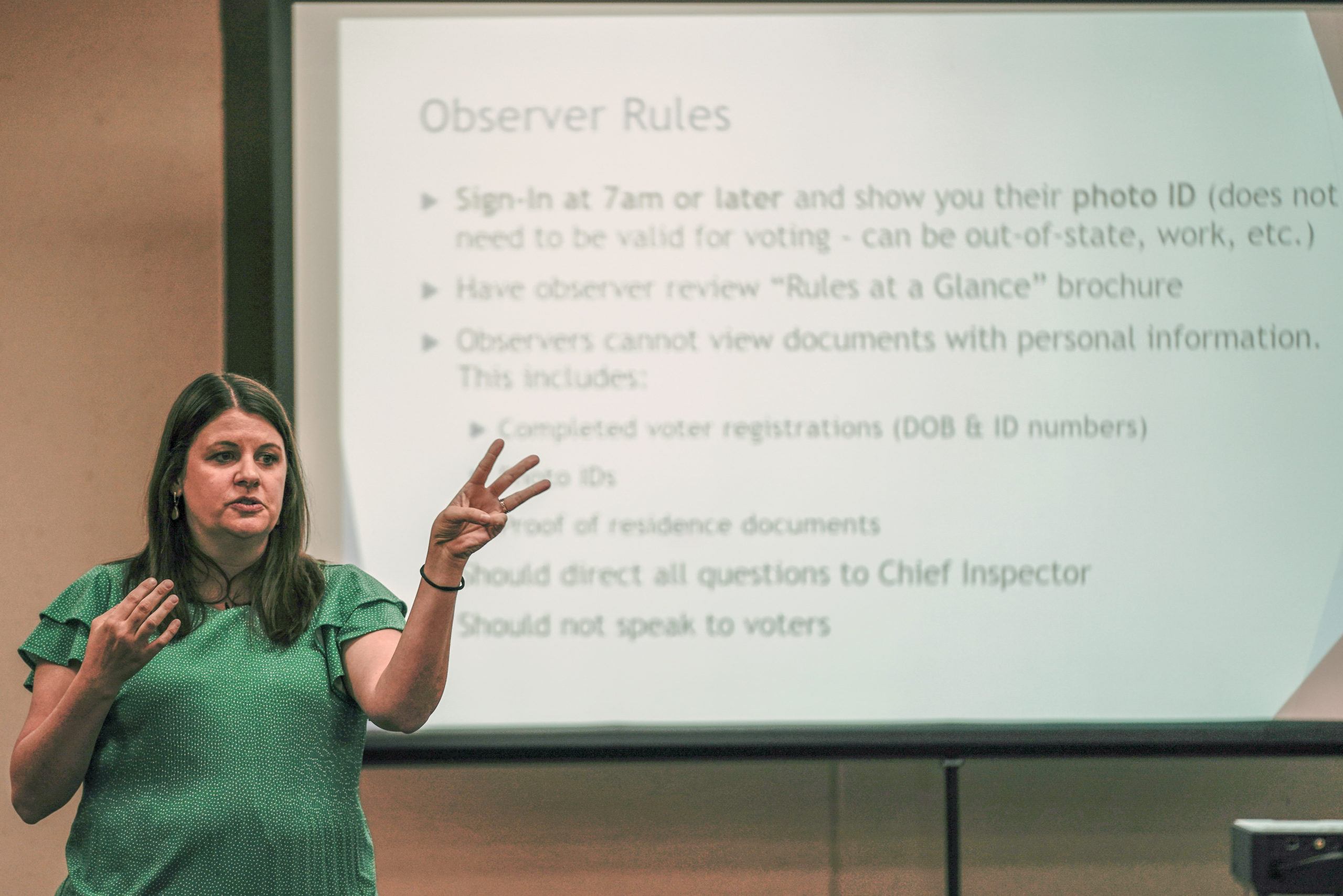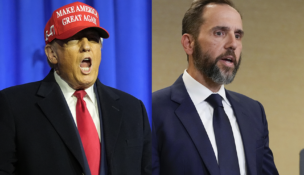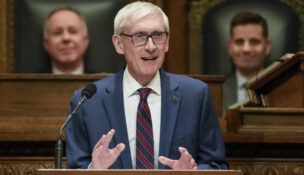157 Wisconsin law firms among PPP loan recipients
By: Michaela Paukner, [email protected]//August 7, 2020//
157 Wisconsin law firms among PPP loan recipients
By: Michaela Paukner, [email protected]//August 7, 2020//
Wisconsin law firms are among the many enterprises that have found relief from the devastating economic effects of the COVID-19 pandemic from federal Paycheck Protection Program loans.
The low-interest loans were designed to provide an incentive for businesses to keep workers on their payroll. Wisconsin received nearly $9.9 billion in PPP loans disbursed among about 85,800 businesses.
In early July, the SBA released a report about the businesses that had been approved for loans. The data detailed which business received loans in amounts greater than $150,000, how many jobs the loan supported, workforce characteristics of the businesses and more. The named businesses received about 75% of the approved loan dollars, according to a press release from the SBA.
Law firm loan recipients
The report listed 157 law firms among the Wisconsin PPP recipients. The complete list is detailed in this spreadsheet. Sixty-two of those firms received loans in amounts greater than $350,000. The largest loans, ranging from $5 to $10 million, went to Godfrey & Kahn and Von Briesen & Roper.
Milwaukee-based Godfrey & Kahn has five offices in Wisconsin and one in Washington D.C. Data from the SBA suggest the firm’s PPP loan allowed it to retain 335 jobs.
Von Briesen has seven offices in Wisconsin, including its headquarters in Milwaukee, as well as an office in Chicago and an office in New York City. The firm was able to retain 340 jobs with its PPP loan, according to data from the SBA.
The SBA did not list an exact loan amount or the nature of the jobs retained in its data. Spokespeople from both law firms did not respond to requests for comment on loan details.
Five Wisconsin firms received loans in the $2 million to $5 million range, and an additional eight firms were approved for $1 million to $2 million each in PPP loans. Of these recipients, DeWitt retained the most jobs with its loan – 219, according to the SBA.
The SBA listed zero jobs retained for the firms Davis|Kuelthau; Habush Habush & Rottier; Hupy and Abraham; and Rauch, Sturm, Israel, Enerson & Hornick.
A communications specialist from Hupy and Abraham declined a request for comment on the firm’s loan. Davis|Kuelthau’s director of marketing and business development asked about the intent of a potential interview with the Wisconsin Law Journal, but after receiving more information, did not provide any further details about the firm’s loan.
The other firms did not respond to requests for comment.
Forty-seven firms received PPP loans in the range of $350,000 to $1 million, and another 95 firms were approved for loans ranging from $150,000 to $350,000. Collectively, the loans allowed these firms to keep 2,618 jobs, according to SBA data.
In total, the 157 firms included in the SBA’s loan-approval data retained 4,068 jobs using PPP loans.
Workforce characteristics of recipients
The SBA data are meant to provide information about diversity among loan recipients, but the majority of firms didn’t answer questions about race, veteran status and similar characteristics.
Only 15 of the 157 firms provided race and ethnicity information, 13 of which said their owners were white. Emile Banks & Associates of Milwaukee is the only Black or African-American-owned firm among the recipients. Houseman & Feind in Grafton is the only Hispanic-owned firm.
Wisconsin isn’t alone in its lack of data about the race or ethnicity of business owners. An analysis from the Center for Public Integrity, a nonprofit and nonpartisan news organization, found about the recipients of 86% of all PPP loans for $150,000 or more didn’t provide information about race or ethnicity.
For those that did answer, the Center for Public Integrity analysis found the majority identified as white. Black-owned businesses received less than 2% of loans nationwide, and Hispanic-owned businesses received about 6.6%.
The response rate for the sex of the business owner was more than double that of race or ethnicity, but still only about 20% of Wisconsin law firms answered.
Four firms — Haskins Short in Monona, SBR Law Group in Brookfield, Epiphany Law in Appleton and Gerbers Law in Green Bay — identified themselves as female-owned. Twenty-seven firms selected male-owned, and the remaining 126 did not answer.
Kittelsen, Barry, Wellington & Thompson in Monroe is the only firm listed as veteran-owned in the SBA data.
Likely aid for smaller firms
Other law firms in Wisconsin most likely received assistance from the federal government as well. The SBA did not name businesses that received loans below $150,000 in its report, but it said these loans encompassed 87% of the PPP loans made.
“The average loan size is approximately $100,000, demonstrating that the program is serving the smallest of businesses,” U.S. Treasury Secretary Steven Mnuchin said in a statement.
Wisconsin has approximately 3,900 law firms, and about 92% of them are small businesses with five or fewer lawyers, according to the State Bar of Wisconsin’s membership statistics. That means only about 4% of Wisconsin firms received PPP loans greater than $150,000.
The smallest of small businesses could benefit under an expected extension of the emergency loan program. In his testimony to Congress on July 17, Mnuchin said new loans should be awarded more to smaller businesses, restaurants and other hard-hit industries.
“I think it’s important that we target this to the businesses that are hardest-hit,” Mnuchin testified to the House Small Business Committee.
Addressing criticisms, moving forward
The loan program was the subject of accusations that it had failed to adequately help the neediest applicants; distributed loans using a rushed, first-come, first-serve system; and benefited wealthy and well-connected companies.
Congress is negotiating a new COVID-19 economic-aid bill. Lawmakers are under pressure to pass such legislation before July 31, when the $600 federal unemployment-assistance benefit for laid-off workers expires.
By June 30, the SBA had nearly $132 billion in PPP funding still available. The new deadline to apply for a PPP loan is Aug. 8.
Businesses can receive loan forgiveness if loans are used for payroll costs, interest on mortgages, rent and utilities if all employee-retention criteria are met. At least 60% of the forgiven amount must have been used for payroll, the SBA said.
Lisa Mascaro, Martin Crutsinger and Marcy Gordon of The Associated Press also contributed to this report.
Legal News
- Money isn’t enough to smooth the path for Republican candidates hoping to retake the Senate
- Milwaukee election leader ousted 6 months before election in presidential swing state
- Former President Trump calls for arrest of special prosecutor Jack Smith
- Wisconsin judge dismisses lawsuit challenging state’s new wolf management plan
- Wisconsin Supreme Court issues opinion on Milwaukee Police officer fired over Facebook posts
- Gov. Evers Seeks applicants for Menominee County Register of Deeds
- Donald Trump calls Joe Biden weak on antisemitism, ignoring his own rhetoric
- Gov. Evers again calls Republican lawmakers into special meeting
- CIA is obstructing justice and witness tampering in Havana Syndrome cover up, attorney says
- Wisconsin Supreme Court will decide whether mobile voting sites are legal
- WisDOT honors Wisconsin State Patrol staff for going above and beyond to keep communities safe
- Milwaukee Men sentenced to Federal Prison for pharmacy robberies and firearms offenses
WLJ People
- Power 30 Personal Injury Attorneys – Russell Nicolet
- Power 30 Personal Injury Attorneys – Benjamin Nicolet
- Power 30 Personal Injury Attorneys – Dustin T. Woehl
- Power 30 Personal Injury Attorneys – Katherine Metzger
- Power 30 Personal Injury Attorneys – Joseph Ryan
- Power 30 Personal Injury Attorneys – James M. Ryan
- Power 30 Personal Injury Attorneys – Dana Wachs
- Power 30 Personal Injury Attorneys – Mark L. Thomsen
- Power 30 Personal Injury Attorneys – Matthew Lein
- Power 30 Personal Injury Attorneys – Jeffrey A. Pitman
- Power 30 Personal Injury Attorneys – William Pemberton
- Power 30 Personal Injury Attorneys – Howard S. Sicula











